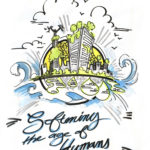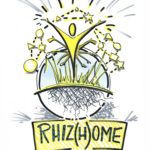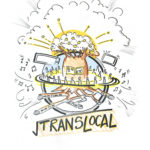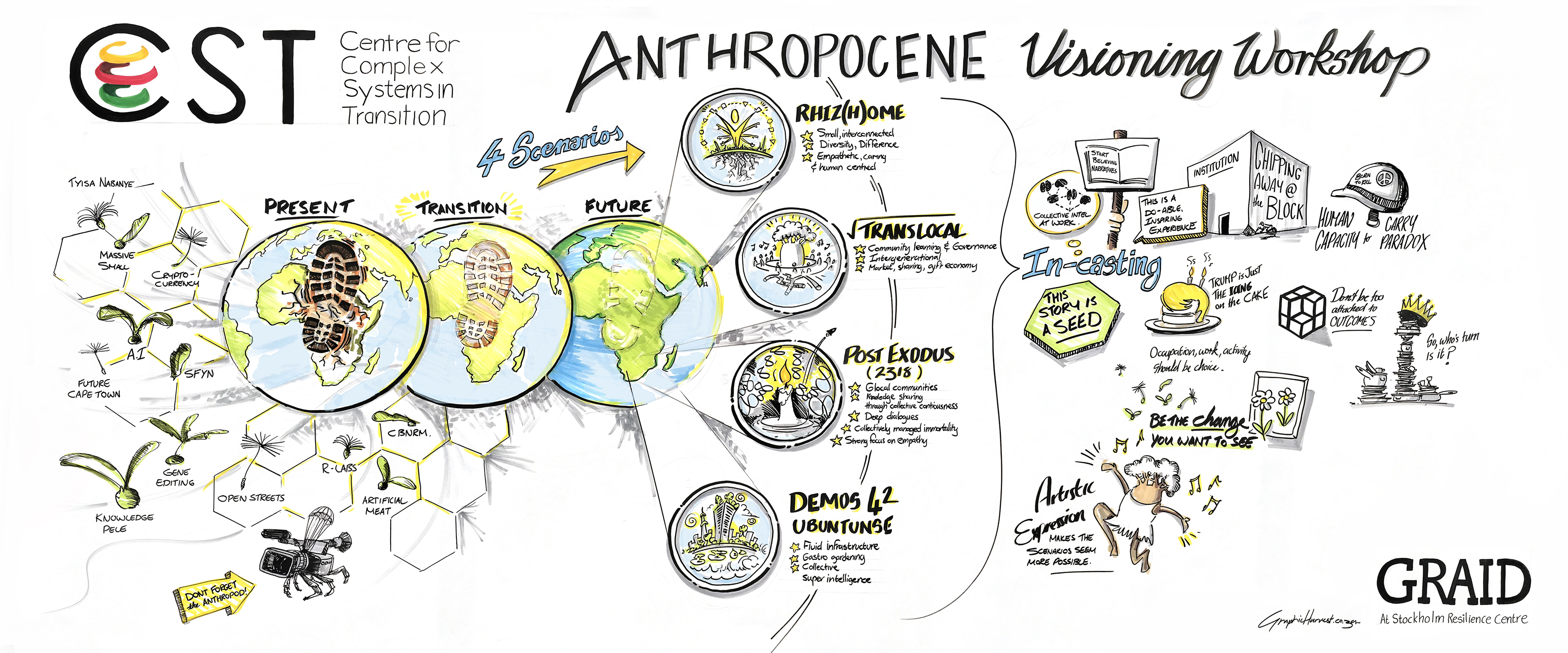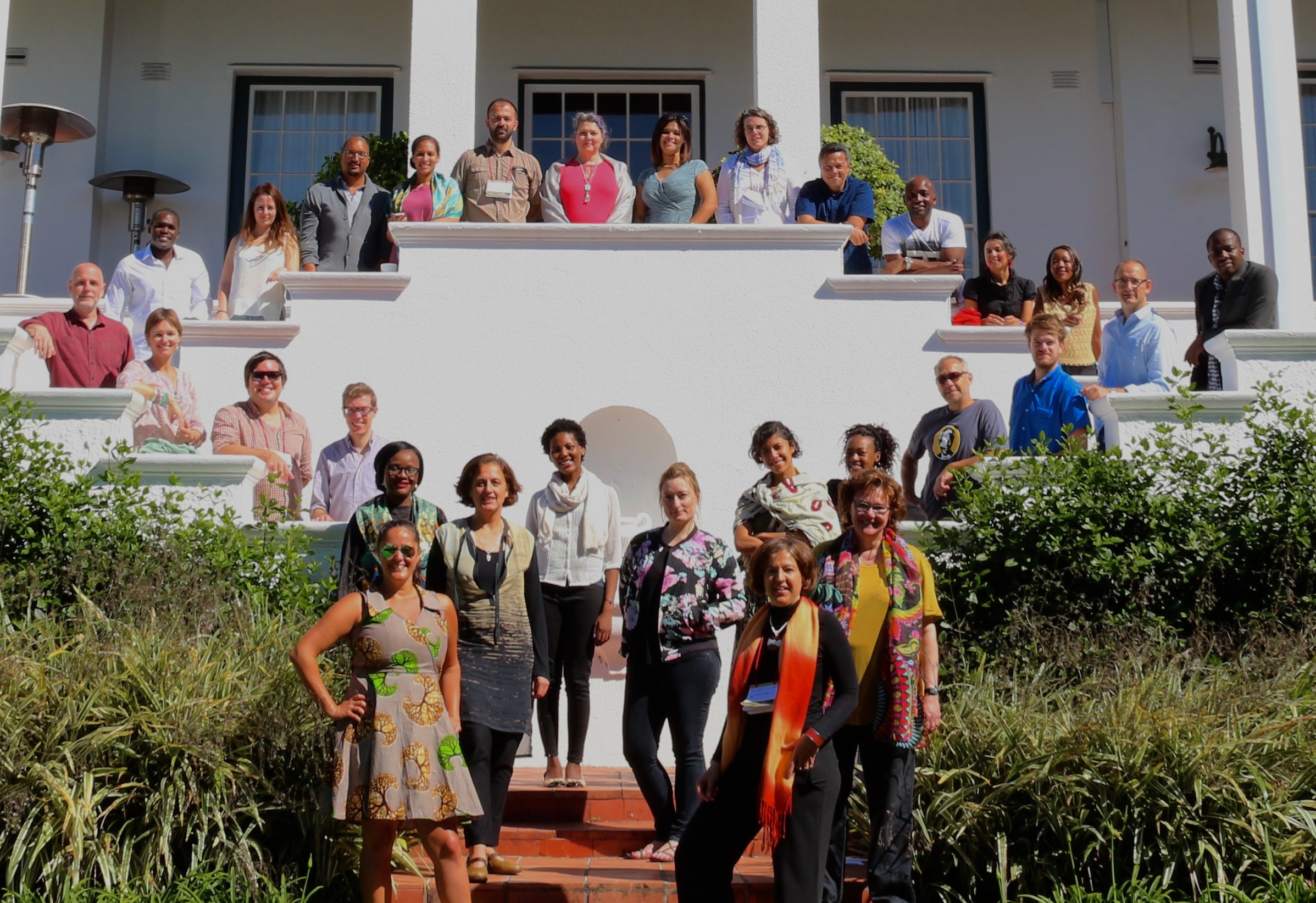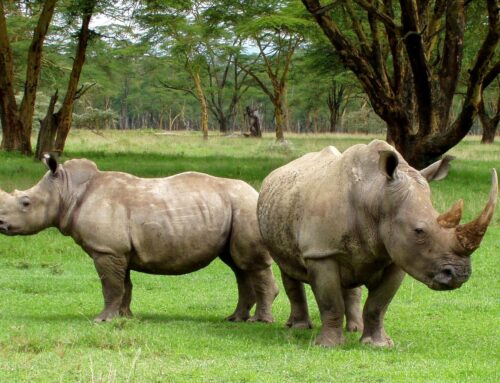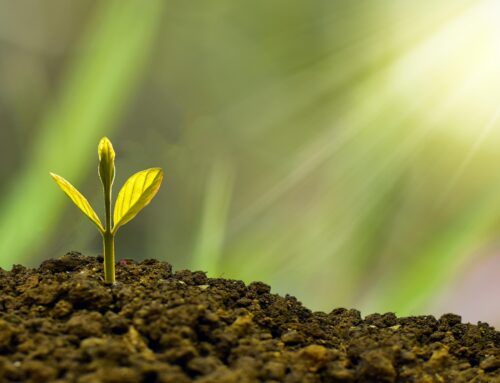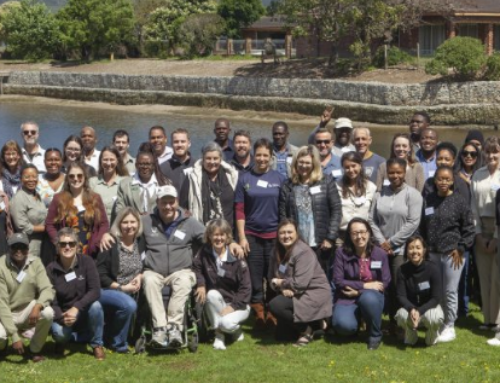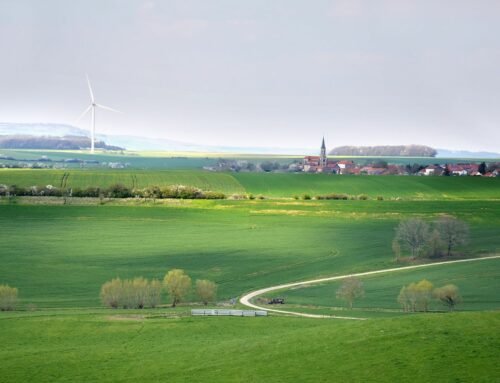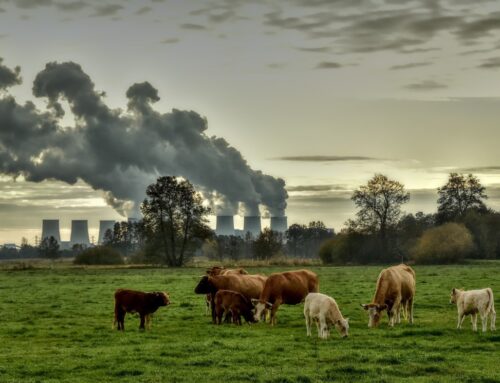Highlights:
1) There is a need for positive visions of the future to counteract the negative narratives that surround us every day and influence our actions
2) Based on “Seeds of Good Anthropocenes”, a diverse mix of scientists, artists and changemakers created hopeful future scenarios for southern Africa at a creative visioning workshop held in Cape Town
3) Participants described the process as deeply transformative, and developed a set of radical scenarios with a strong emphasis on engaged citizenry, decentralized power and local, small-scale production systems
- Demos42
- Post Exodus
- Rhiz(h)ome
- Radical Translocal
The Anthropocene, or literally the “Age of Man”, is the name for a new geological epoch in which humanity has become a dominant global force re-shaping the geological, biological and atmospheric dynamics of Earth. In the Anthropocene, we face new and diverse challenges, such as an increasing disconnect between people and nature, widening inequalities, and potential planetary tipping points. At the same time, ever-increasing technological progress and human development are opening up novel and exciting opportunities for addressing some of these key challenges.
But how do you reconcile both the immense challenges that we face in the Anthropocene, and the wonderful, novel opportunities that are emerging all around us? At a time like this, it is especially important to have positive visions of the future to guide us along sustainable trajectories for society. This is because visions and stories tend to be self-fulfilling, making it crucial to nurture alternative visions of the future that go beyond the typical narratives of collapse and dystopia.
With this goal in mind, the Seeds of Good Anthropocenes initiative aims to solicit, explore, and develop a suite of alternative visions for “Good Anthropocenes” – positive futures that are socially and ecologically desirable, just, and sustainable. This initiative is a collaboration between the Stockholm Resilience Centre in Sweden, McGill University in Canada, and the Centre for Complex Systems in Transition (CST) at Stellenbosch University in South Africa. The objective is to counterbalance prevailing dystopic visions of the future that may be inhibiting our collective ability to move creatively towards a better trajectory for the Earth and humanity.
As a first exploratory step in this initiative, a workshop was convened by the CST in Cape Town, South Africa, in November 2016, with support from the GRAID programme, FutureEarth and PECS. A diverse group of over 20 scientists, artists, and changemakers were brought together to create positive future scenarios for the southern African region, by following a highly creative visioning process.
For more information on the workshop, the resulting scenarios, and the lessons learned throughout this first phase of the project, please visit this news item on the Stockholm Resilience Centre website, or download the workshop report here, or view the videos about the workshop at the CST’s YouTube channel.


